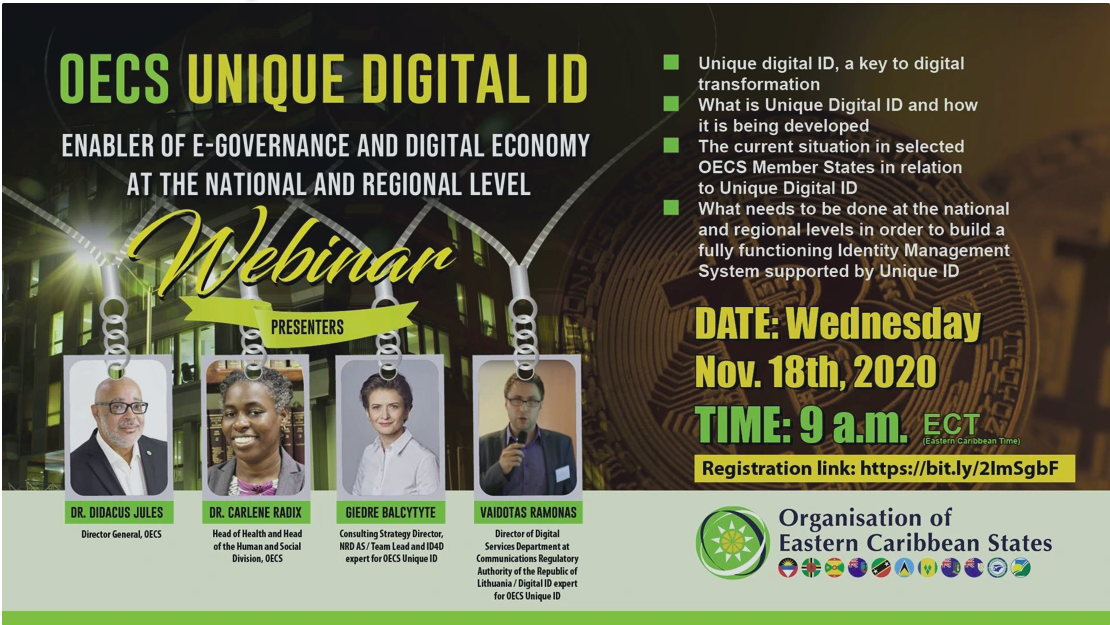OECS Unique Digital ID: Enabler of e-Governance and Digital Economy at the National and Regional level

Invitation to participate in the Webinar on Wednesday, 18 November!
In an effort to enhance awareness on the OECS Unique ID, the OECS Commission in collaboration with Norway Registers Development will jointly host a Webinar on Wednesday, 18 November 2020 to continue consultations towards the development of the unique digital identification document.
The Small Island Developing States (SIDS) of the OECS face a number of common challenges in the context of economic globalisation and trade liberalisation. Public sector modernisation is key to improving efficiency and competitiveness in the region – placing an emphasis on using Information and Communication Technologies (ICT) to improve internal efficiency, delivery of public services, coordination among agencies, and transparency and accountability of the public sector. Improving the free flow of persons and goods to support a regionally integrated Economic Union is also essential to improving the global competitiveness of the OECS region.
To achieve these objectives, Member States have already implemented a number of actions and steps under the E-Government Regional Integration Project (EGRIP), however, some countries are at different phases of implementation. Consequentially, there is a need for a clear action plan that would allow the complete application of the OECS Unique ID in all Member States.
Webinar Objectives
The main objective of this Webinar is to enhance awareness, facilitate knowledge sharing with stakeholders of the OECS Member States, and provide preliminary findings from the individual country/stakeholder consultations.
Join us on 18 November 2020 to explore and better understand:
- What is the Unique Digital ID and how it is being developed?
- The Unique Digital ID: a key to digital transformation.
- The current situation in selected OECS Member States in relation to the Unique ID.
- What needs to be done at national and regional levels in order to build a fully functioning identity management system supported by the Unique ID.
Target Audience
Policymakers; Government agencies; Investment, finance and insurance entities; Development agencies; Private Sector Partners; Public utility companies; IT Personnel; and OECS nationals.




